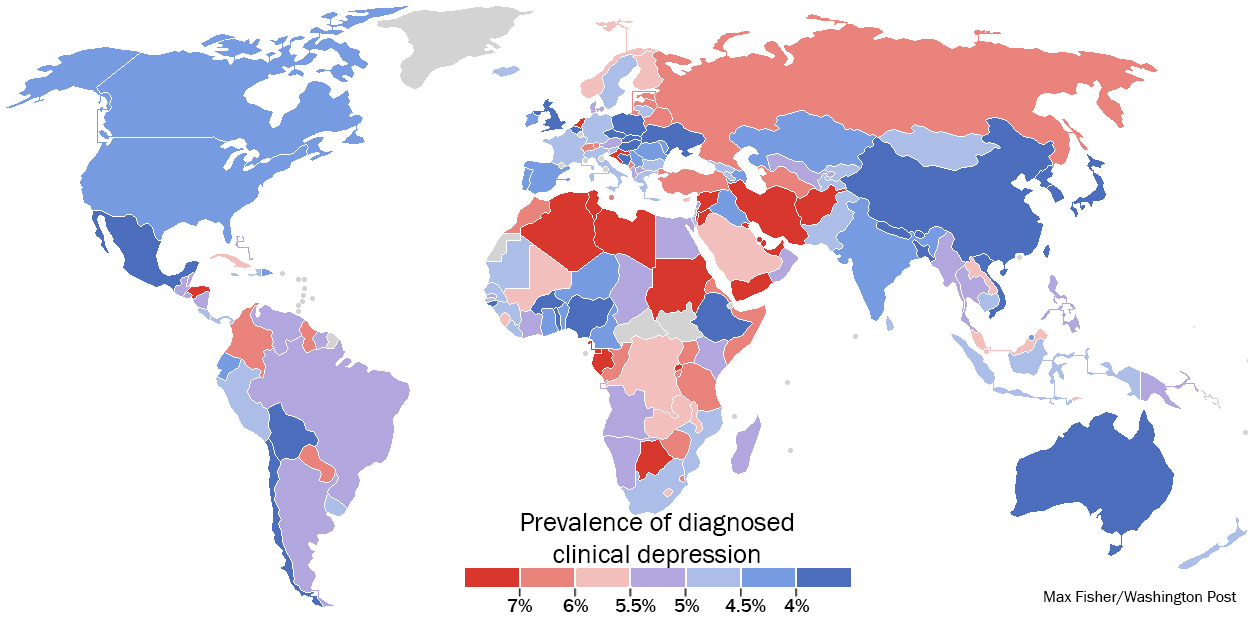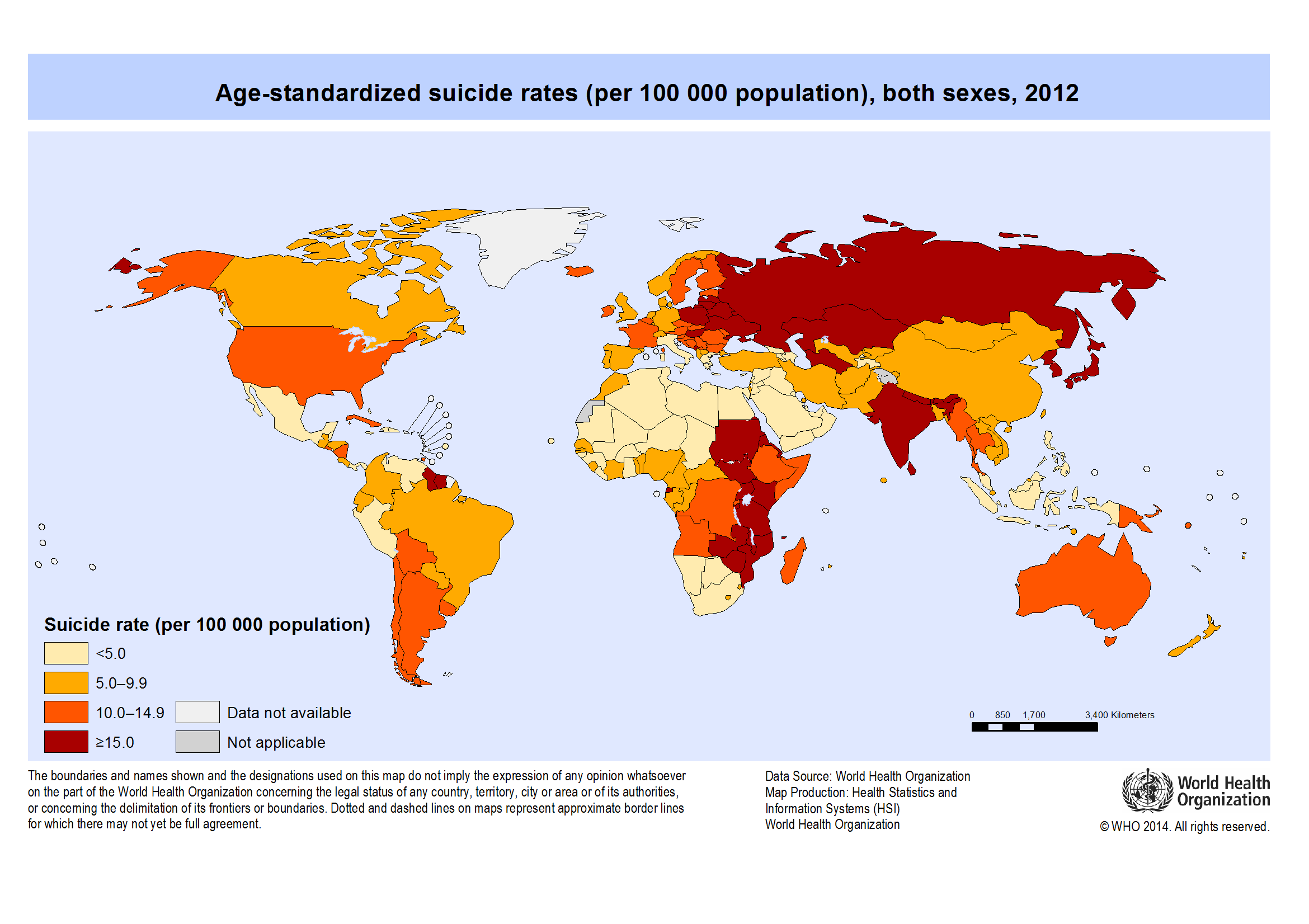People tend to confuse becoming more aware of a problem with there being more of that problem.
We are now said to live in a “post-truth” world, where various players make their own “truth”. Well yes, but that’s not new, is it?
Rather like opening a forgotten pantry in the kitchen to discover a tangle of sprouted onions, pools of liquid potatoes and a nascent civilization in a Marmite jar, it is simply a case of becoming aware of a problem that was there the whole time.
The implication appears to be that politicians completely fabricating their own “truth” (rather than only parametrically slanting the real one) is somehow a novel phenomenon.
That’s the most ridiculous claim in the history of history.
Unless someone wants to tell us that ancient despots claiming to be gods, the religious-war, witch-hunt and pogrom riddled middle ages, the fascist and communist 1930s, or the time when Europe was like Saudi Arabia is today (which was less than a hundred years ago) was a period of particular love of truth.
My ass it was.
All of human history has basically been the olympics of lying.
The new thing is that people are broadly realizing it.
The “post-truth world” is similar in this regard to the alleged “modern epidemic of depression”.
It’s simply a misperception due to improved diagnostics, the discovery of a previously implicit and unrecognized problem, which to a careless observer looks like things getting worse, when precisely the opposite is the truth. It’s good news. We’re noticing what has always been wrong – which means we can now start fixing it.
Sure, diagnoses of depression are soaring. But not prevalence. It’s just that, tragically, so many people in the past went unhelped.
People are now getting diagnosed and treated who 50 years ago would have gotten a pat on the back by their GP and told to suck it up, and/or started drinking (which is also a kind of “sucking it up”).
THIS IS GOOD NEWS, BECAUSE WE’RE NOW NOTICING A PROBLEM THAT WAS THERE THE WHOLE TIME FOR FUCK’S SAKE.
You have countries with atrocious healthcare (China, India) or a honour-based culture that prevents people from showing feelings (Japan, Korea) that are near the bottom of the depression prevalence statistics – but they’re also near the top of the suicide statistics, because people just jump off buildings instead.
Look:

 Notice how in many places, the maps are almost perfectly inverse.
Notice how in many places, the maps are almost perfectly inverse.
To any backpacking twenty-something keen on discovering the formula for happiness in the ancient bosom of the Orient or deep Africa, you’re more likely to discover hepatitis and huge spiders.
They’re not happier, they’re just not getting help.
Big fucking difference.
How do people get things so catastrophically wrong? Couple of connected factors at work.
As a problem is being solved, awareness of it increases.
But there is a latency – the “awareness curve” follows with a delay behind the curve of the problem itself, which has nasty side effects – such as hallucinatory panics long after the original problem was solved.
Often, policymakers fail to realise awareness-raising efforts can paradoxically undermine perceptions of progress.
For instance, the intense focus on solving world poverty in recent decades has, through media exposure, led to an impression of a crisis, even though it has actually dropped in half in the last 20 years.
It’s a law. Increased awareness -> impression of higher incidence.
People weren’t aware of the problem -> sensitisation campaign -> meanwhile giant strides towards solution -> sensitisation campaign works -> it is a new thing in people’s awareness so they surmise it’s a new thing objectively (!) -> perceptions of doom just as in fact unprecedented triumph.
What’s more, awareness-raising mechanisms often persist longer than the problem. This can happen either through simple inertia, or the vested interest of structures designed to deal with the problem, which have to resort to increasingly inclusive and creative definitions of the problem to maintain an illusion of relevance.
There is a contributing factor at work, in that the awareness that people mistake for incidence is itself based on heavily negatively biased reporting.
Stuff that used to happen a lot is now happening rarely, so it gets reported every time it happens precisely because it is rare, which creates the impression it’s happening a lot, even though the opposite is true.
As a consequence, dumb people come to exactly the wrong conclusions about which way the world is going, and panic just as the underlying problem is becoming negligible or at least manageable, and at any rate better. You’d be surprised, for instance, how few child abductions there are, or rapes.
It’s like the “immune system” solves a problem 99% and then mobilises all its strength to flush out the last remnants, which are just as often not even there anymore, attacking healthy tissue and causing a catastrophic autoimmune overreaction.
Echo panic that comes with considerable delay after the actual thing.

At best, it leads to brief moral panics, at slightly worse to misguided policies that jump at shadows, and at worst to overreactions that undo decades of hard-won progress – such as the recent escalation of social tensions in America at what is precisely the best time and place for women and ethnic and sexual minorities in the history of humankind.
These hysterias become self-reinforcing as the excesses of one group (motivated at first by a heavily publicised isolated incident, or inaccurate assessment of reality) cause pushback by another group, which in turn causes pushbackback, and the originally vanishingly small fringe groups of bigoted haters (of different sexes and races) snowball and pick up lots of formerly indifferent, reasonable, sane people, who get swept up by the escalating provocations and excesses of the side further from their own.
These things are cause for concern. Consider this formula:
Things are good and improving + people mistakenly believe the world is going to shit, react to that -> people fuck things up, world actually goes to shit.
Be part of the solution, or be an evangelist of data-driven optimism, but don’t be one of the moaners.
Like today, the world prior to WW1 was the best it has ever been – not without its problems, sure, but in many ways, a harmonious era of unprecedented international cooperation, scientific progress and social conciliation. The last thing anyone expected was an epoch-ending conflagration. And yet…
We’re now in an eerily similar situation and should take extra care not to fuck up what’s already been achieved, by mistaking increased awareness of our relatively modest and manageable issues for a broad deterioration of civilisation, which would be the opposite of truth.
The recent rises of anti-globalisation rhetoric and isolationism, and intra-national tribal tensions, stemming at least partly from such errors, are scary when you look at history.
TLDR, imbeciles fail to discriminate between diagnosis and incidence. Then they sometimes ruin good things. Don’t let ’em.
